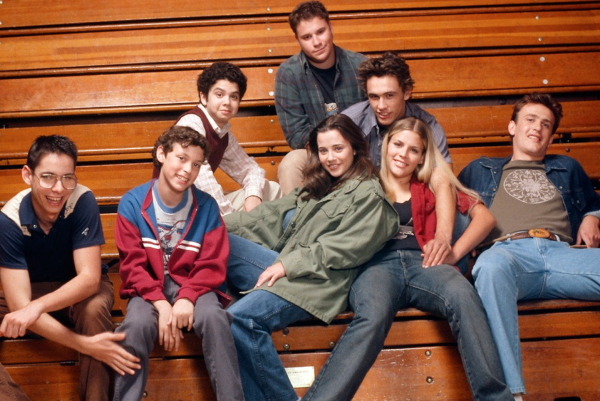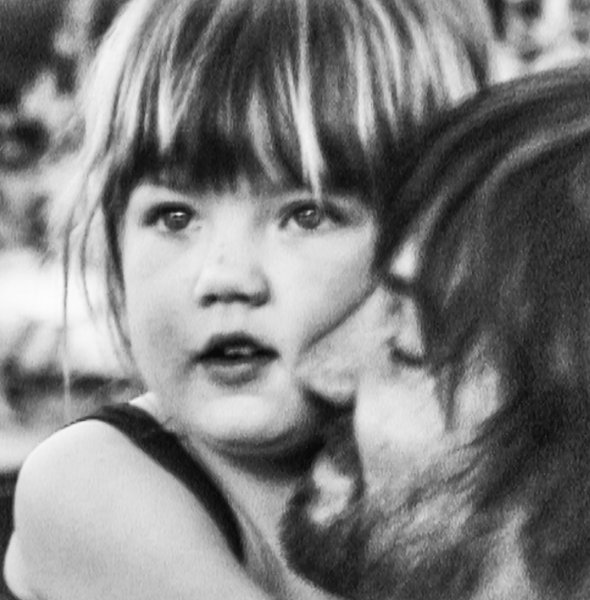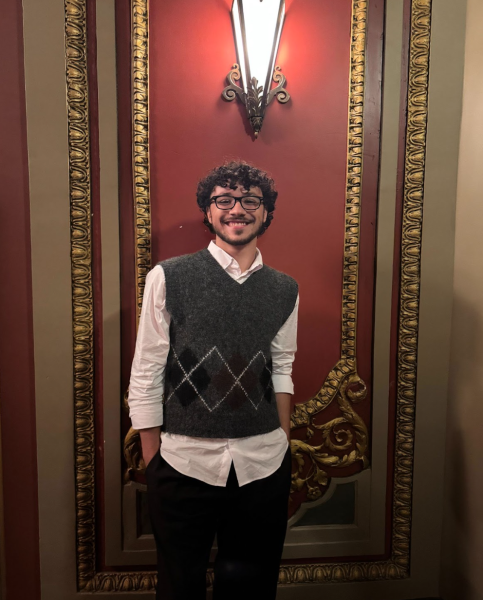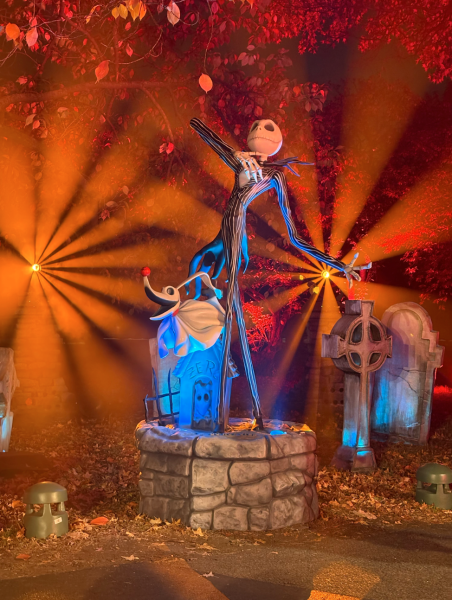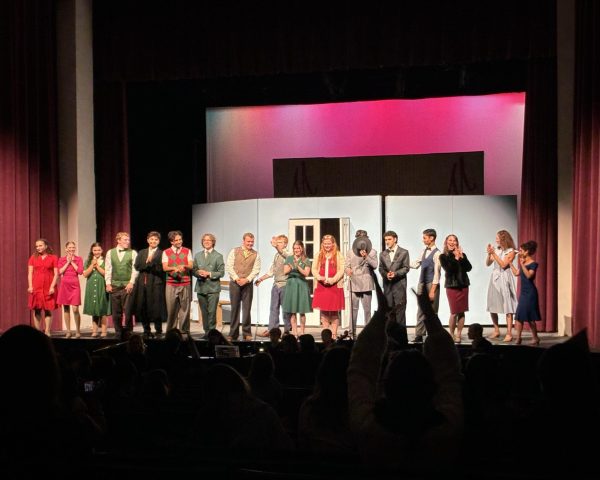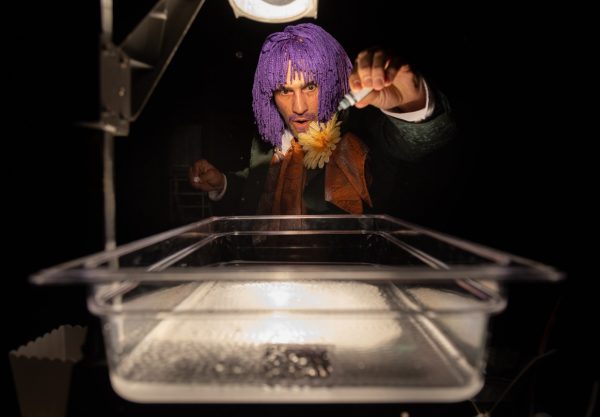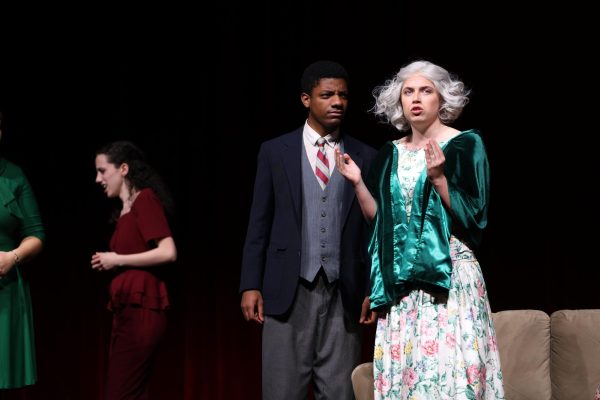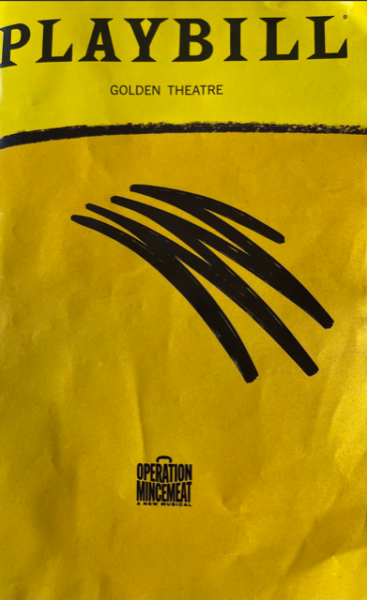WEC Performs Ensler’s “The Vagina Monologues”
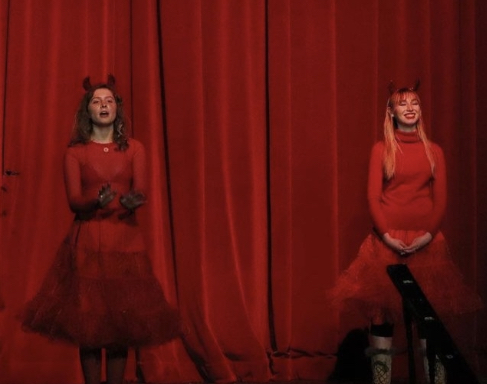
WEC performs the play every two years, introducing new students to Ensler’s work. (Courtesy of Instagram)
The show began with an empty stage and a chalkboard covered in all of the different names that people use to skirt around that strange, harsh, six-letter word. “Hooha,” “vajayjay,” “punani,” muff” and — my personal favorite — “cooch” curled across the dark board in soft, pastel shades. In the biggest font of all, written right in the middle of the board, loomed the forbidden word that all these other nick-names had been created in order to bury: “Vagina.” As the performers took the stage, delivering Eve Ensler’s fantastic monologues with the confidence and exuberance of someone breaking through stereotypes that had burdened them their whole lives, that word hung over their heads, “Vagina.” The members of the Women’s Empowerment Club (WEC) who performed the monologues glowed as they discussed the joys of female sexuality, the communality of menstruation and reproduction and the horrors of genital mutilation.
Ensler wrote “The Vagina Monologues” in 1996, when one would hardly ever hear the word “vagina” mentioned out loud. Already a known playwright, she crafted the 27 monologues that the WEC performed after interviewing different groups of women about their relationships with their vaginas. The diversity of the topics reflected in the monologues shows the vast breadth of how women can relate to their bodies and how having a vagina impacted so much of their lives.
The WEC has been putting on “The Vagina Monologues” every two years for as long as anyone currently in the club can remember. When I profiled the club for Women’s History Month, Natalie Ortof, FCRH ’22, explained the importance of this show. “We really try to focus on [sexual liberation] especially on a college campus like Fordham, where they are a lot less liberal. They don’t give out free birth control, they don’t give free condoms, they just don’t really discuss sexual health at all,” said Ortof.
Truly, “The Vagina Monologues” emphasizes the beauty and empowerment in female sexuality. One of my favorite monologues of the night, “The Flood,” was about an older woman who had denied her sexuality throughout most of her life after a traumatic incident in her youth that included a cute boy, a moving kiss and a rush of emotion that led to, well, a flood. As the performer delivered the monologue, she stripped off the baggy clothing she had donned to impersonate the grandmother for the bright, red dress that characterized the youthful lusts that still lived within the older woman. With this monologue, Ensler explored the eternal life and physical manifestation of desire. Watching the performance of this monologue, I realized how often I had seen jokes about men, young and old, getting erect at the sight or touch of the recipient of their affections, but how rarely I had ever seen a similar joke about women. While I’m sure a few exist, I cannot currently think of any. And if a woman ever exhibits desire, the focus is on her lips or her breasts, not her vagina. As I laughed alongside my peers at the jokes and excellent acting of this monologue, I felt a sense of community and kinship envelope the room. So many of us had shared in these experiences, even if so few of us had ever heard them acknowledged before.
Yet, the breadth of “The Vagina Monologues” extends far beyond just sexual desire. “The Memory of Her Face” focuses instead on identity, splitting up this monologue into three separate stories about women having their faces and identities stripped from them. The woman in the first story, “Islamabad,” loses her face after her abusive husband forever deforms her by pouring acid on her. The second, “Baghdad,” is about a girl whose house was destroyed by a bomb, the fire from which burned off her face. This section ends from her father’s perspective as he sees his daughter as a bandaged, bleeding thing. The final section of this monologue, “Juarez,” is about 300 women who were kidnapped, mutilated and raped. Each of these sections, whether they depicted a girl, a woman or someone in between, showed how the cruelty of our patriarchal societies have ripped their feminine identity from them through personal or impersonal violence.
A few of the other monologues discuss the awkward, intimate experiences that women share when it comes to caring for the hygiene, health and overall well-being of their vaginas. “My Angry Vagina” personifies the vagina to express anger at the outdated tools used in gynecology, douching and other improper treatment of the vagina.
WEC put on a wonderful performance of this classic play, inviting a whole new group of young women, men and nonbinary folks to witness the narrative power of “The Vagina Monologues.” Before I interviewed Ortof for the WEC profile a few weeks ago, I had never even heard of the play. Now, having witnessed Ensler’s words fall from the mouths of my peers, I feel myself changed. Emboldened. I encourage anyone who has not heard of this play, especially those who have vaginas themselves, to see it as soon as possible.

Kari White is a senior from the blink-and-you’ll-miss-it state of Delaware. She is majoring in English with a concentration in creative writing, as well...



































































































































































































